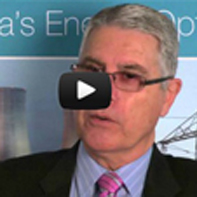PROGRESS 2050: Toward a prosperous future for all Australians
31/08/2012
 |
|
 |
|
 |
Billions of dollars in investment and thousands of jobs are at stake unless governments can find the right balance between meeting community expectations and allowing industry to progress unconventional gas developments, CEDA's latest policy perspective has found.
CEDA, Chief Executive, Professor the Hon Stephen Martin said in releasing CEDA's Australia's Unconventional Energy Options today that successful development of this resource could provide a lower emission energy source than traditional supplies such as coal and deliver tens of thousands of jobs.
"Currently we are seeing superficial arguments that pit farmers or environmentalists against miners. This is holding back the discussions that need to take place to progress this issue, which is why CEDA has undertaken this work," he said.
"With the exception of Queensland, development of unconventional energy in Australia is still in its infancy. However, the main unconventional gas source in Australia, coal seam gas, represents about one quarter of Australia's economically demonstrated resources of gas from all sources.
"In Queensland we are already seeing significant developments progressed. However, the full potential of unconventional energy resources across Australia can only be realised if it continues to have a social licence to operate.
"In recent weeks we have seen further protests in NSW and a moratorium being discussed in Victoria for coal seam gas extraction, which shows that the social licence to operate is in serious jeopardy.
"You can't expect zero risk with any industry, but a balance can be struck between communities, protecting the environment and miners, provided the right checks and balances are put in place by government and are implemented quickly.
"However, further delays may see this industry's social licence to operate irrevocably damaged."
Professor Martin said CEDA's policy perspective draws together five experts to explore key issues identified by CEDA around unconventional energy development in Australia including:
- The economic opportunities for Australia;
- Ground water management and property rights issues;
- Gaps in the current legislative and regulatory regimes; and
- Lessons Australia can learn from the US experience in developing these resources.
"CEDA is consequently calling for improvements in community consultation and land access negotiation processes, and for industry to adopt OECD community consultation best practice standards," he said.
In addition, Professor Martin said specifically around water management, CEDA is calling for:
- Unconventional energy water use to be integrated into regular water allocation frameworks;
- Industry to be required to develop a risk management framework that applies stringent precautionary measures until more is known about the long term implications for water resources of unconventional energy extraction; and
- Water management requirements for unconventional energy extraction to be made long enough to ensure industry is responsible for all consequences of the activity.
"While many of these issues fall to state and territory governments to manage, the potential economic significance of this industry for Australia means the Federal Government should also be working with the states and territories to ensure consistency across jurisdictions," Professor Martin said.
Media contact
 |
 |
 |
